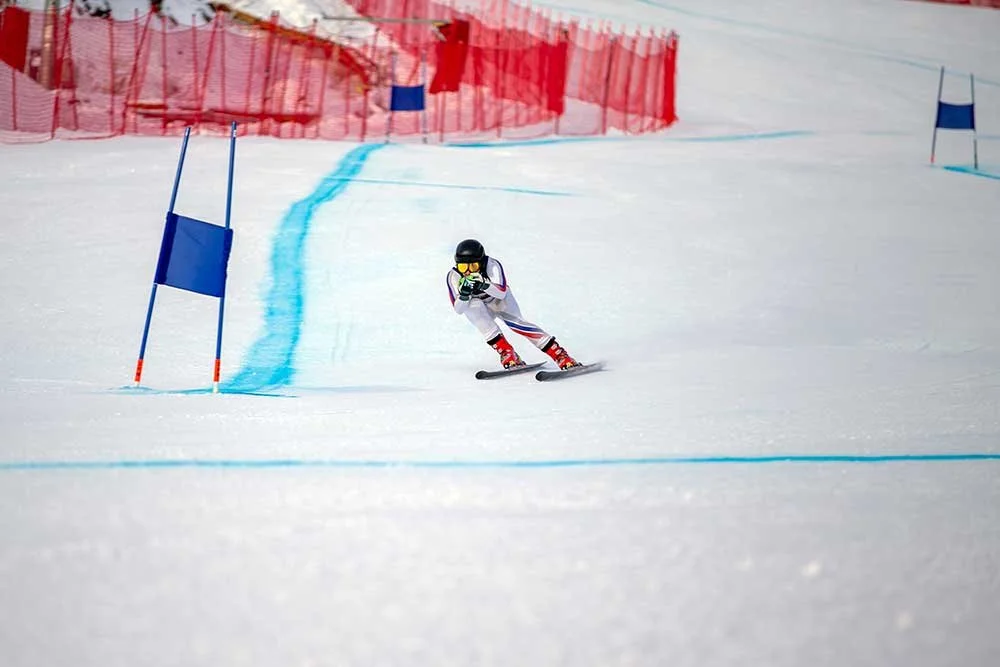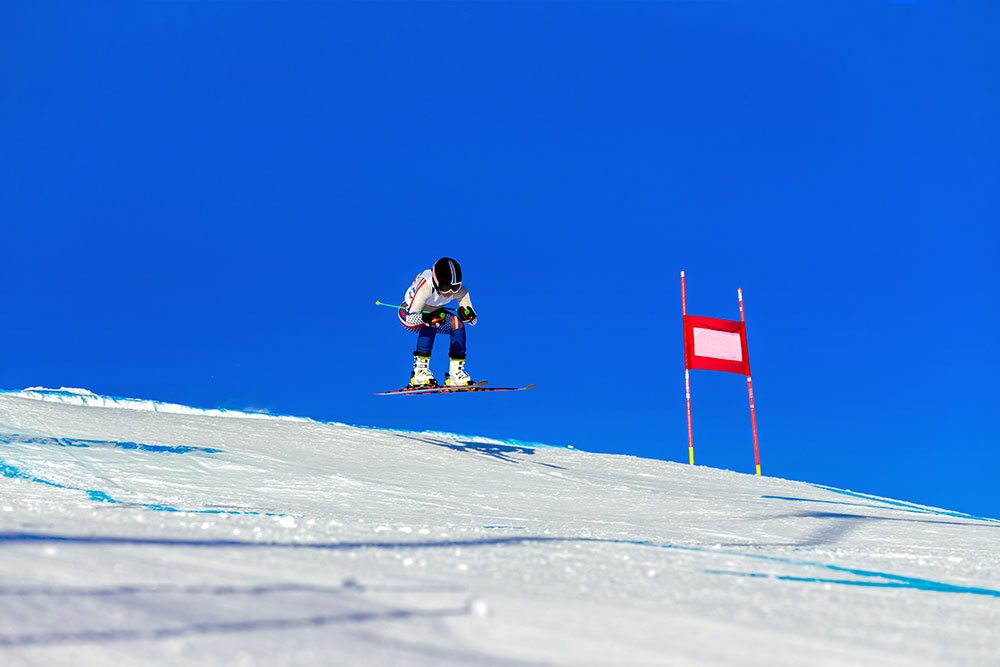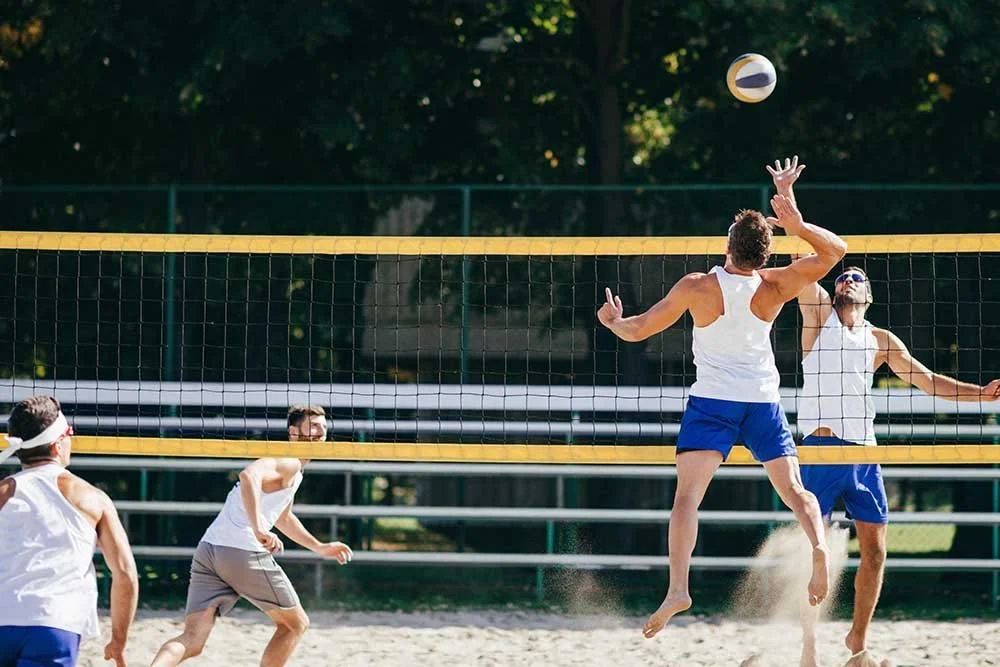Can an Athlete Compete Without an ACL?
Do I have to have surgery, or can I compete with a missing ACL?
In his recent Sports Medicine Minute, Dr. William Sterett, knee specialist at Vail-Summit Orthopaedics & Neurosurgery and former U.S. Ski Team physician, addressed this exact dilemma. The answer depends on stability, sport demands, and long term joint health.
Why Female Olympians Tear Their ACL More Often Than Men
Key Takeaways from Lindsey Vonn’s Career
Knee durability in ski racing is shaped by years of accumulated stress rather than a single injury.
Partial knee replacement can support a return to elite competition when anatomy and rehab align.
Podium finishes after surgery reflect training evolution and load control not chance.
Modern ski racing places increasing value on joint preservation across multiple seasons.
What Lindsey Vonn’s Career Shows Us About Knee Longevity in Competitive Ski Racing
Key Takeaways from Lindsey Vonn’s Career
Knee durability in ski racing is shaped by years of accumulated stress rather than a single injury.
Partial knee replacement can support a return to elite competition when anatomy and rehab align.
Podium finishes after surgery reflect training evolution and load control not chance.
Modern ski racing places increasing value on joint preservation across multiple seasons.
Reflecting on My Retirement: A Personal Message from Dr. Sterett
As I prepare to retire from Vail Summit Orthopaedics and Neurosurgery at the end of 2025, I find myself reflecting on a career that has given my life tremendous purpose. For more than thirty years, I have had the privilege of caring for athletes, families, and community members who inspire me every day. This work has shaped who I am, and it has been one of the greatest honors of my life.
The 2025-2026 FIS Ski Season Is Here: Reflections from a Former U.S. Ski Team Doctor
For Dr. William Sterett, this time of year always brings back memories. As a former U.S. Ski Team physician, he traveled the globe with some of the fastest athletes on earth, helping them recover, perform, and push the limits of the sport. Today, from his clinic in Vail, Dr. Sterett shares his perspective on the season ahead, and offers a heartfelt good luck to all of the athletes competing on the road to the 2026 Olympics.
Tiger Woods’ New Back Surgery: An Orthopaedic Surgeon’s Theoretical Take
Recently, Tiger underwent another back surgery that has generated plenty of discussion in sports and medical circles alike. While Dr. Sterett was not involved in Tiger Woods’ care, he offers a theoretical explanation of what this operation may have involved and what it could mean for Tiger’s game moving forward.
When the Season Ends in Surgery: Staying Positive After a Sports Injury
As Dr. William Sterett, a board-certified orthopedic surgeon and sports medicine specialist at Vail-Summit Orthopaedics & Neurosurgery in the mountain town of Vail, Colorado, I’ve worked with countless athletes who faced the heartbreak of a season-ending injury. For many, the physical pain is only part of the challenge. The bigger hurdle can be dealing with the disappointment of missed practices, games, and time with teammates.
Preventing Overuse Injuries in Multi-Sport Athletes
As Dr. William Sterett, a board-certified orthopedic surgeon and sports medicine specialist at Vail-Summit Orthopaedics & Neurosurgery in the active mountain town of Vail, Colorado, I often see young athletes who push themselves to the limit. Playing multiple sports is a great way to build diverse skills and keep kids engaged, but without the right balance, it can also lead to overuse injuries.
How to Prepare for Ski and Snowboard Season
For those who live in the mountains, or travel here every winter, skiing and snowboarding aren’t just hobbies, they’re a way of life. But hitting the slopes without preparation can set you up for injury, especially when it comes to your knees and shoulders.
As Dr. William Sterett, board-certified orthopedic surgeon and sports medicine specialist at Vail-Summit Orthopaedics & Neurosurgery, explains:
“Most of the injuries I see early in the season are preventable. A little work before the lifts start spinning can save you months of recovery later.”
Top 10 Questions to Ask Your Orthopedic Surgeon Before Surgery
When you’re facing an orthopedic surgery, whether it’s for your knee, shoulder, or another joint, it’s natural to feel both hopeful and a little overwhelmed. Knowing the right questions to ask your surgeon can help you feel informed, confident, and prepared for the road ahead.
As Dr. William Sterett, a board-certified orthopedic surgeon and sports medicine specialist at Vail-Summit Orthopaedics & Neurosurgery, explains, “Patients do better when they’re active participants in their care. Asking thoughtful questions isn’t just encouraged, it’s essential.”
ACL Tears in Field Hockey: What Female Athletes Should Know
An ACL tear in field hockey typically occurs during a sudden stop, pivot, or change in direction, exactly the kind of movement field hockey players make on every possession. Most injuries are non-contact, meaning they don’t happen from a collision, but rather from planting the foot and twisting the knee under load.
Pickleball and Knee Pain: Identifying and Preventing Common Injuries on the Court
If you’ve stepped off the court with aching knees, you’re not alone. As a sports doctor for pickleball injuries, I often treat patients with pain related to overuse or improper mechanics. Some of the most frequent pickleball knee injury diagnoses include:
Patellar Tendonitis (Jumper’s Knee): Pain just below the kneecap, often from repeated jumping or forceful squatting.
Meniscus Tears: Caused by twisting motions, especially when the foot is planted but the knee rotates.
Runner’s Knee (Patellofemoral Pain Syndrome): General pain around the kneecap from repeated impact or misalignment.
Bursitis: Inflammation in the knee's cushioning sacs, usually from kneeling or direct pressure.
Whether you’re a seasoned player or just learning the ropes, it’s important to recognize the signs of a pickleball knee injury before it sidelines your summer fun.
Patellar Tendonitis vs. Jumper’s Knee: What’s Causing Your Summer Knee Pain?
Jumper’s knee is a form of overuse injury that affects the patellar tendon the thick cord of tissue that connects your kneecap (patella) to your shinbone (tibia). This tendon plays a key role in knee extension, allowing you to straighten your leg and absorb force during jumping and landing.
When repetitive impact overloads the tendon, it can lead to microtears, inflammation, and chronic pain. This condition is especially common in high-impact sports like volleyball, basketball, running, and more recently pickleball.
Preventing Shoulder Injuries in Youth Baseball and Softball
As a board-certified orthopedic surgeon and sports medicine specialist in the active mountain town of Vail, and Frisco, Colorado, I see a noticeable uptick in shoulder injuries every summer—especially among young baseball and softball athletes. While throwing is an essential part of the game, repetitive motion and poor mechanics can set the stage for serious injury.
If your child is playing in a summer league or attending a baseball or softball camp, now is the time to take shoulder injury prevention seriously.
ACL Tears in Kids: What Parents Should Know About Treatment and Recovery
Knee injuries might seem like something that only affects adults—but in today’s world of youth athletics, ACL tears are showing up more and more in kids. As an ACL Doctor in Vail, Colorado, I’ve seen a noticeable rise in pediatric ACL injuries over the past decade.
The stakes are different for growing athletes. A torn ACL doesn’t just disrupt a season—it can affect growth, development, and long-term knee health if not handled properly. The good news? With the right treatment strategy, young athletes can heal, return to sport, and continue to thrive.
Summer Sports & ACL Tears: What You Need to Know Before You Hit the Field
There’s a lot to love about summer—longer days, warmer weather, and the return of outdoor sports. But as activity ramps up, so does the risk for certain injuries, especially tears to the anterior cruciate ligament (ACL). Whether you're gearing up for a weekend tournament or joining a trail running group, it's important to know how summer sports can affect your knees.
3 Habits That Can Put Your ACL at Risk
As Dr. William Sterett, a board-certified orthopedic surgeon and sports medicine specialist at Vail-Summit Orthopaedics & Neurosurgery in the mountain town of Vail, Colorado, I’ve treated thousands of ACL injuries over the course of my career. While some ACL tears are due to unavoidable factors—like genetics or bad luck—others are the result of habits and movement patterns that can absolutely be changed.
The good news? These are behaviors you can control. Let’s look at three common actions or choices that put your ACL at risk—and what you can do to protect your knees before injury strikes.
Which 4 Sports Have the Highest Injury Rates?
As Dr. William Sterett, a board-certified orthopedic surgeon and sports medicine specialist at Vail-Summit Orthopaedics & Neurosurgery in the active mountain town of Vail, Colorado, I’m often asked which sports pose the highest risk for injury. You might think of extreme sports or high-speed activities first—but you may be surprised by what consistently shows up at the top of the list.
Is There a Time During My Menstrual Cycle When My ACL Is Most at Risk?
As Dr. William Sterett, a board-certified orthopedic surgeon and sports medicine specialist at Vail-Summit Orthopaedics & Neurosurgery in the athletic community of Vail, Colorado, I’ve worked closely with countless female athletes. One question that’s come up more frequently in recent years is this: Does my menstrual cycle affect my risk of tearing my ACL?
The short answer is yes—there is growing evidence that hormone fluctuations throughout the menstrual cycle can influence ligament laxity and neuromuscular control, which in turn may increase the risk of ACL injury during specific phases.
Were You Born with a Higher Risk of ACL Injury? – 3 Anatomical Traits That May Put Your Knee in Jeopardy
As Dr. William Sterett, a board-certified orthopedic surgeon and sports medicine specialist at Vail-Summit Orthopaedics & Neurosurgery in the active mountain town of Vail, and Frisco, Colorado, I’ve seen thousands of ACL injuries throughout my career. While many assume these injuries are purely a result of bad luck or poor technique, the truth is—some people are simply born with anatomical features that make ACL tears more likely.




















